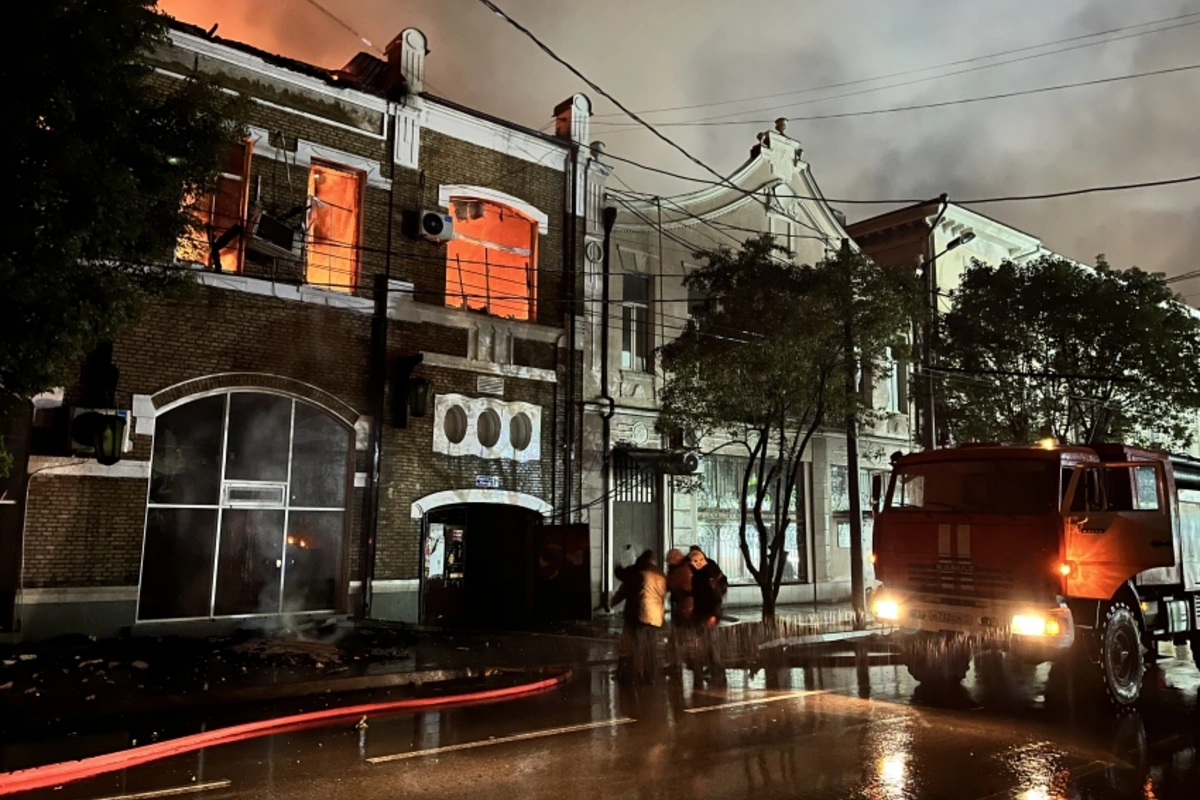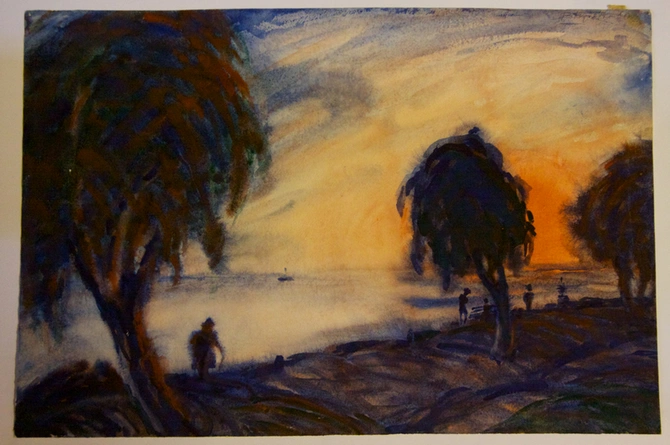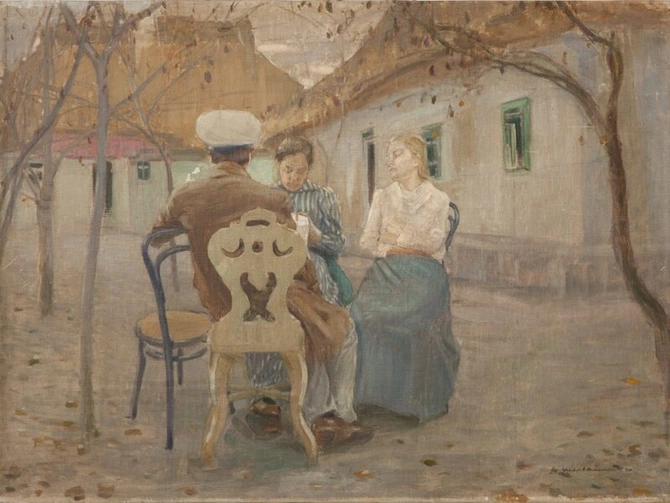
Priceless canvasses with Yoko Ono links were among many irreplaceable artworks lost in a tragic conflagration that destroyed the most important gallery of Abkhazia.
Image: mchs.apsny.land
A catastrophic fire in Sukhum(i)[1] has left the ‘National’ Gallery of Abkhazia in ashes. The blaze broke out on Sunday in the bank building next door and rapidly spread, eventually ravaging around 4000 paintings and sculptures that had represented the single most important art collection in the breakaway republic. Abkhazia is considered a renegade, Russian-occupied province of Georgia by Tbilisi and most UN states. However, since 2008, Moscow and just a handful of other countries have recognized it as an independent state.
Cameras captured the aftermath of the tragic fire, with between 100 and 200 canvasses seen being salvaged, albeit some scorched or ripped by falling debris. However, the vast majority of the collection was irrevocably burnt. Amongst the most significant losses are works by Varvara Bubnova (1886-1983), a curious figure in Russian avant-garde art who had worked with Kandinsky in the early years of the Soviet Union but then spent 30 years in Japan before eventually retiring to Abkhazia after the death of Stalin made life less perilous for unconventional artists.

Sukhumi Promenade (1960) by Vaкvara Bubovna. Image: National Art Gallery of the Republic of Abkhazia via abaza.org
Varvara’s 1922 move to Japan had been encouraged by her sister Anna, a talented violinist. Anna was a music professor at Tokyo’s Tusashino Music Academy and married Shun’ichi Ono, uncle to none other than Yoko Ono—who would go on to become a conceptual artist in her own right as well as the famous partner of John Lennon. Some sources credit Varvara with inspiring Yoko’s artistic development, reporting that the Bubovna sisters were tutors to the young Yoko.

In the Garden (1892) by Aleksandr Shervashidze-Chachba. Image: National Art Gallery of the Republic of Abkhazia via abaza.org
Even more devastating for the people of the republic is the loss of dozens of works by Aleksandr Shervashidze-Chachba (1867-1968), who is widely seen as Abkhazia’s greatest pre-Soviet painter. After the Russian Revolution, Shervashidze went into exile in France, where he cooperated with many European greats, including Picasso. For independent-minded Abkhaz, his lineage is also important as the direct descendant of Abkhazian princes. Much of his work was sent to Sukhum(i) as a bequest after his death in 1968, and some reports say that as many as 300 Shervashidze works perished during this weekend’s fire.
In the days since the blaze there have been recriminations in Sukhum(i) over the perceived neglect to which the priceless paintings had been treated. The collection miraculously survived the Georgian civil war (1992-3, known in Abkhazia as the Abkhazian People’s Patriotic War) and was moved to a historic former women’s college building in 1997 but, perhaps understandably given Abkhazia’s economic collapse of that era, was never given sufficient funds to renovate the gallery and warehouse spaces fully. Photos have surfaced that show how many important paintings had been chaotically stored in disorderly stacks and were thus all the more susceptible to the rapid spread of fire. Writers have called the situation “a tragedy and a disgrace.” One article added “Everyone who helped carry out the paintings from the burnt building had soot and paint on their hands. But our government has the blood of our culture on its hands.”
People are now referring to 21 January 2024 as Abkhazia’s “Black Sunday.”
[1] The spelling of Abkhazia’s administrative centre can be seen as suggesting political allegiance, Sukhum being the Abkhaz rendering, Sukhumi the Georgian
Share on social media